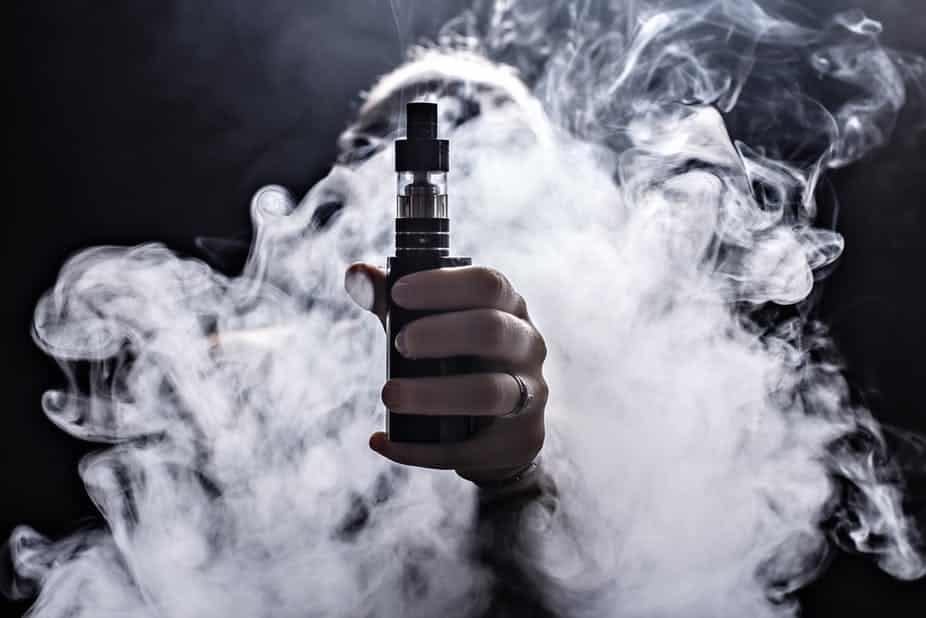Psychotherapy is the umbrella term for various therapies aimed at assisting people in overcoming issues such as psychiatric disorders, mental health issues, behavioural disorders, and addiction.

Psychotherapy’s main goal is to help you become more aware of your feelings and understand why they cause you to behave in various ways. You will be better positioned to modify numerous parts of your life once you have a greater understanding of your sentiments.
Psychotherapy is a term that refers to “talking treatments” that can help with emotional issues, relational issues, harmful habits, and stress. These talking therapies can be done one-on-one or in a group environment.
In a group environment, you may be with other family members or with others who are dealing with a similar situation.
While talking is the most common type of psychotherapy, other techniques such as theatre, art, exercise, and music are occasionally utilised. It is common to tell your counsellor or therapist how you feel and what thoughts you have during psychotherapy sessions. You are more likely to open up about your concerns in a safe and comfortable environment once you have built trust with your therapist.
If your loved one needs support dealing with an Alcohol Addiction, contact us today on 0800 999 1083. We can help you by recommending treatment options.
Although there are numerous psychotherapy techniques and approaches, they all aim to assist you in developing healthier and more pleasant habits. The type of psychotherapy you receive will usually be determined by your unique circumstances and the type of condition you wish to address, how severe it is, and how responsive you are to different treatments.
The most important thing to remember about psychotherapy is that it works. It is a treatment that is based on your relationship with your therapist. Because the therapist is compassionate, objective, non-judgmental, and neutral, you are much more likely to address the concerns bothering you in this supportive setting.
You may be hesitant to try psychotherapy at first because you believe it will not work, or you may be uncomfortable talking about your deepest feelings with a stranger. However, if you can overcome your apprehension, you will likely find that the benefits of psychotherapy outweigh whatever discomfort you may have had at first.
Psychotherapy sessions are usually held once a week and last an hour. You’ll start looking forward to your sessions because you’ll know that each one will get you closer to resolving the issues that have been giving you so much misery.
Psychotherapy aims to help you gain a better grasp of the problems that are plaguing your daily life. It’s critical to understand why you’re having trouble with these challenges so you can make suitable changes to improve your quality of life and maybe move on from your current situation.
Developing a trusting relationship between you and your counsellor is an essential component of psychotherapy. It is critical that you feel at ease with your counsellor or therapist and that you can trust them. This will allow you to be more open and honest with your thoughts and feelings in the long run.
It’s possible that you don’t have anybody else to talk to about your current predicament. Your relatives and friends may be unable to comprehend what you are going through and cannot relate to your feelings. A counsellor or therapist, on the other hand, is different. You will have a person in psychotherapy who understands what you are going through and can give you a non-judgmental setting in which you can just be yourself and speak whatever you want. This is how psychotherapy is carried out.
It may seem counterintuitive that simply talking about your problems may help you overcome them. Still, counsellors have been educated to utilise psychotherapy to get to the root of your issues and help you understand why you need to make reasonable changes.
People frequently struggle to see the truth of their own condition. As a defensive precaution, their brain engages in denial, preventing them from perceiving what others can clearly observe. You may be assisted in identifying the negative ideas that have been influencing you to misbehave.
Many addicts, for example, have a difficult time understanding why everyone else has a problem with their drinking or drug abuse. They don’t see it as a problem. Their brains have changed as a result of the chemicals they’re ingesting, but they can’t see it. Others believe they are in serious trouble and want assistance. Psychotherapy can assist addicts in recognising their issues and better understanding why they act the way they do.
Psychotherapy is a phrase that refers to a variety of counselling strategies that are used to address emotional and behavioural issues related to conditions like behavioural disorders, addiction, and mental health disorders.

Medication is not always used, unlike in pharmacological therapy. A range of talking or movement therapies are employed in psychotherapy to help tap into the causes driving the maladaptive behaviour and stimulate the development of new good behaviours and coping methods. You should feel happier and more content after your session since you will have made progress.
To treat some co-occurring mental health conditions, a combination of medication and psychotherapy might prove beneficial.
Numerous techniques fall under the category of psychotherapy. Your therapist will evaluate your condition to establish the most effective ways to assist you in overcoming your condition. Here are a few examples of the various psychotherapy procedures that could be used:
This tool will assist you in identifying the negative attitudes and beliefs that have contributed to your harmful or self-destructive behaviours. You can overcome a variety of challenges, including substance addiction and behavioural disorders, by learning to question negative beliefs and creating healthy coping strategies. You and your therapist will collaborate to find solutions to your difficulties, and you may be given homework to complete during each session.
Acceptance and change are fundamental themes in dialectical behaviour therapy. DBT was developed in the 1970s to treat suicidal people, but it has now been adopted for other purposes, including substance use problems. The focus of treatment for substance use disorders is on reducing substance use and the behaviours that lead to it and promoting healthy behaviours (such as the formation of strong relationships) that assist the person in avoiding using.
Exposure therapy is a sort of behavioural therapy that helps people overcome their fear of things, activities, or situations. Therapists and psychologists regularly utilise it to treat disorders like post-traumatic stress disorder (PTSD) and phobias. It’s also been used in treatment to assist people in coping with anxiety and co-occurring disorders while on drug addiction treatment.
It intends to assist you in becoming more aware of your subconscious ideas and how they may be driving your undesirable behaviours. This method aims to go into your subconscious mind and encourage you to communicate anything you’re thinking. The idea is that this will provide more insight into the underlying meanings of your words and actions.
Your interpersonal interactions are scrutinised in this method. Your negative behaviours may be the result of a strained relationship with family or friends. You’ll focus on strengthening your interpersonal skills and learning techniques for dealing with stressful situations.
This addiction treatment is commonly used. The goal is to discover something that will inspire you to change your ways and make better judgments in the future. The therapist’s role is to help you establish a desire to change by being empathic and showing you how to reach your goals through positive approaches.
It occurs with significant people in your life. It is not limited to blood relations or immediate family members. Anyone who plays an essential supportive role in your life should be able to participate in your treatment. During family therapy sessions, you and your loved ones will meet with a counsellor or therapist to examine difficulties within the family (and social) unit that may have contributed to your condition. It’s also a chance for your family members to talk about how your disease has affected their lives. The idea is that by being more aware of one other’s needs and feelings, you can all work together to enhance communication and learn how to conquer the condition.

This therapy is intended to assist you in becoming much more self-aware. You may develop your self-awareness by learning to recognise your strengths. This therapy is founded on the premise that everyone has good inside them, ready to emerge, and humanistic therapy can assist in this process. You should be able to resolve your own difficulties to improve your quality of life with acceptance and understanding from an objective and unbiased therapist in a supportive setting.
Contingency Management is a typical treatment for substance abuse disorders, and it’s especially popular among teenagers who can’t perceive abstinence as a reward. Instead, they are rewarded with concrete items for good behaviour and meeting established objectives. Addicts may be given a prize if they fulfil a specified goal at an inpatient institution. On the other hand, negative behaviour may result in privileges being taken away. For example, the addicts may be rewarded with vouchers in outpatient treatment programs if they provide a negative urine test.
Most modern addiction treatments are built around psychotherapy. While detoxification and other measures address physical dependency, psychotherapy is critical in addressing the psychological aspects of addiction and is effective in numerous cases.
While understanding the causes of addiction can be traumatic, psychotherapy can heal rather than just treat the symptoms. Psychotherapy has the highest success rate of any method used for drug addiction treatment. There are many different therapy models to choose from so that an individual can choose the best approach for them.
Addicts will require assistance not only to overcome their physical addiction but also to address their psychological obsession. While detox will assist you in quitting the substance to which you are addicted, it will not address the root of your addiction or help you from relapsing in the future. It is critical to learn how to live without a chemical substance if you have a chemical addiction; nevertheless, it is equally crucial to learn how to avoid relapse in the future.
Addicts must get to the bottom of their condition and treat these issues to move forward. To effectively recover from addiction, you’ll need to combine detox with a recovery programme. Psychotherapy is an extensively employed treatment method for all types of addiction.
When it comes to addiction treatment, psychotherapy can be applied in various ways. It can be utilised to develop better habits as well as discover the causes of the condition. It will be easier for you to conquer your sickness if you learn more about the causes of your self-destructive behaviour. If you understand why you become addicted, you are considerably more likely to achieve long-term abstinence.
Because addiction is linked to various triggers, thoughts, emotions, behaviours, and social interactions, it’s critical to understand how each of these factors has influenced your disorder. You will learn ways to either avoid or manage these situations as part of your treatment.

While any counselling therapy for drug addiction is preferable to none, group therapy is usually chosen over individual therapy. You’re more likely to be challenged and supported by peers who are also going through rehab in group therapy.
Peer support groups include 12-step programmes like Narcotics Anonymous and Alcoholics Anonymous. They may be beneficial to your recovery plan. However, keep in mind that they are not the same as group therapy because a certified psychotherapist does not lead them.
Individual counselling can be helpful when you have depression, bipolar disorder, or any severe mental illness that needs to be treated apart from your substance use disorder.
The residential treatment removes you from the environment and circumstances that contributed to your drug use. You’ll be staying at a rehab clinic for a few weeks or months. You’ll learn new habits or skills for sober living while you’re there.
While this method works in the short term, there is little evidence that it helps you stay drug-free for longer than outpatient programmes, which you attend for ranging from a few hours to several hours each day while living somewhere else.
Going from a controlled, inpatient environment to your home, where it’s easy to start using again, may increase your chances of relapse. Residential treatment programmes are also costly. They can be quite expensive, and insurance policies do not usually cover them.
The most common environment for drug and alcohol misuse therapy is outpatient treatment programmes.
Don’t go through the process of recovery alone. Treatment providers can answer your questions. Get in touch with one today.
Call 0800 999 1083 today!
The most important thing is to go into treatment prepared to communicate honestly and openly. Your therapist has your best interests at heart, and treatment will be helpful for you if you follow their advice and respond favourably.
The core of psychotherapy is talking with your therapist about a variety of concerns to expose problems deep within your psyche and learn how to deal with them. One-on-one (you and the therapist) or group therapy (various patients working together alongside the therapist) are both options. Of course, transparency and honesty are essential.
The effectiveness of therapy is highly dependent on your willingness to participate. Because psychotherapy is not a miracle cure, a comprehensive addiction treatment programme includes psychotherapy and other elements.
Substance abuse is more than just a physical addiction to drugs or alcohol. You’re at high risk of relapse even after detox, when your body is no longer dependent. Relapse can be triggered by a variety of psychological and social factors:
These factors can lead to a strong desire to use it again. Counselling can help you overcome cravings and learn to cope with life’s challenges without using drugs or alcohol.
Several counselling methods are used to treat substance abuse. There is no evidence that one method is superior to another. Similarly, no single strategy for opiate addiction works for everyone. Your addiction and unique needs will determine the best treatment approach.
Psychotherapy is offered as part of a recovery treatment regimen. You might also seek counselling from a therapist outside of rehab, or you could be referred to one by your doctor or another referring organisation.
Addiction recovery is a long-term process that continues after treatment is over. Aftercare is any type of ongoing care you receive after you leave rehab. The most common forms are 12-step meetings, outpatient care, counselling, and sober living.
Although counselling is a component of psychotherapy, a therapist is not always a counsellor, and you may decide to seek counselling in addition to any therapy you are receiving. Listening and giving advice, especially in difficult situations (which may include addiction), is the profession of counselling. On the other hand, therapy seeks to comprehend various concerns and develop ways to address them.
Narcotics Anonymous (NA) is a worldwide network of community-based meetings for drug addicts. It’s a 12-step programme with a defined procedure for recovering addicts, structured after Alcoholics Anonymous (AA), which shares many similarities.
It’s also a programme centred on abstinence. In general, NA opposes the use of maintenance therapy, though many groups and individuals are more accepting of it currently than in the past. Methadone Anonymous is a 12-step organisation that recognises the importance of methadone and other narcotic addiction treatments in recovery. SMART Recovery and Celebrate Recovery are two more popular recovery meetings.
Addiction is a long-term disease, and addiction recovery might be a life-long process. Those who have it will likely relapse, even after successfully completing their treatment programs.
Once you’ve completed detox, you’ll almost certainly require ongoing care, including counselling and potentially medication (depending on the substance you abused).

BACP accredited psychotherapist with 16 years experience working in mental health specialising in psychodynamic person-centred therapies treating those with a range of mental health disorders including anxiety, depression, OCD and Addiction.

Fill in your details and we’ll send you a message via SMS.

No matter where you live, there are drug and alcohol rehab options for you to discover. Treatment providers are waiting to answer your questions. Get started today.

Ever felt that gnawing ache or burning sensation in your gut after a night of drinks? You’re not alone. Stomach pain after drinking is a common complaint, and there are a few reasons why it might happen. Let’s delve into the science behind the discomfort and explore ways to soothe your stomach. The Irritating Truth: … Continued

Cocaine, a stimulant known for its short-lived burst of energy and euphoria, hides a dark side. Behind the initial high lies a dangerous potential for overdose, with severe health consequences and even death. This article delves into the world of cocaine overdose, equipping you with the knowledge to recognize the signs, understand the dangers, and … Continued

Adult smoking habits in the UK refer to how often and in what ways people aged 18 and above use tobacco. This includes everything from smoking cigarettes every day to occasionally lighting up, as well as using other tobacco products. Understanding these habits is important for several reasons: Public Health: Smoking causes many diseases that … Continued

Addiction in the UK is a complex issue that is connected to various aspects of society such as healthcare and law enforcement. It affects people from all backgrounds and has negative impacts on families, communities, and the entire nation. Understanding addiction involves not only looking at the uncontrollable use of substances and repetitive behaviors but … Continued

Don’t go through the process of recovery alone. Treatment providers can answer your questions. Get in touch with one today.
Call 0800 999 1083 today!








